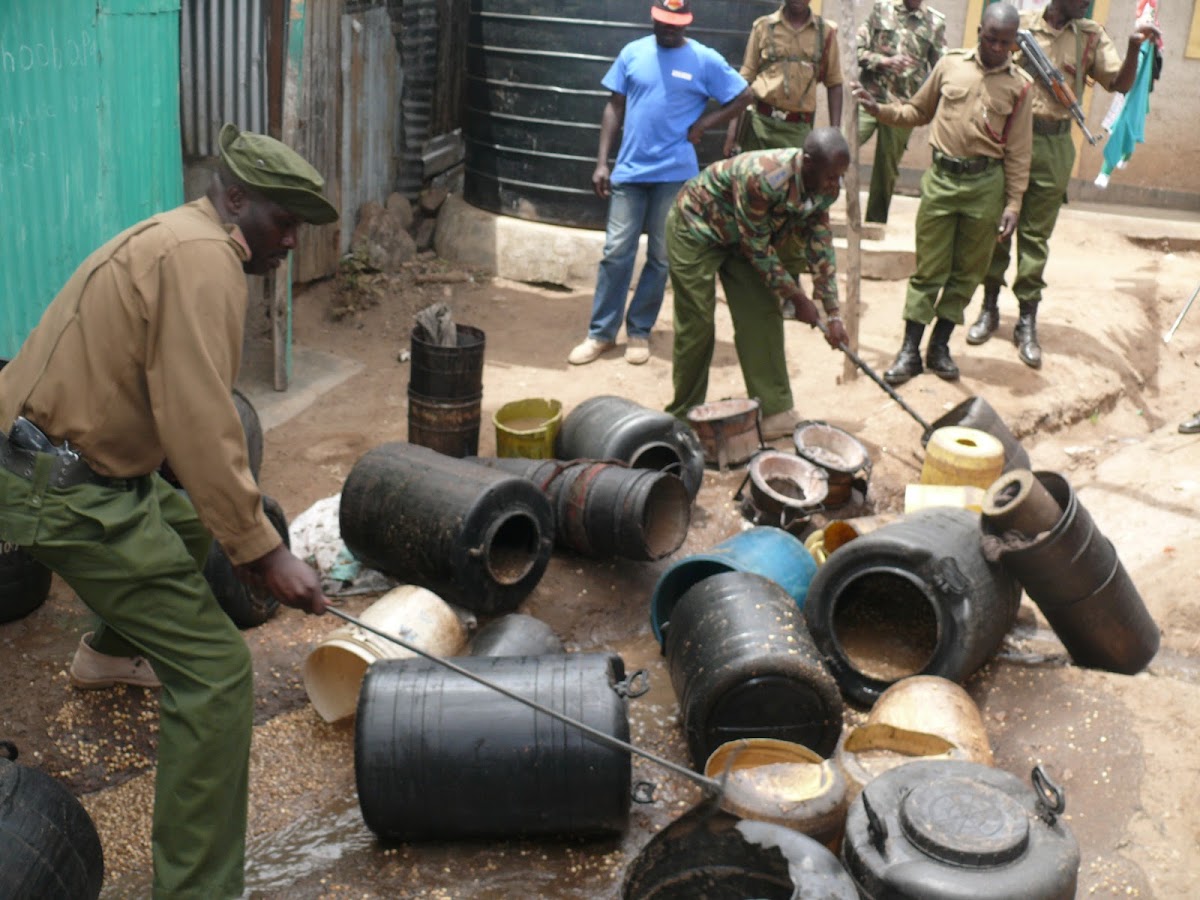Producers of counterfeit alcohol are equal to murders due to the health risks their beverages present all under the watchful eye of the tax man.
This is because we have no way of ascertaining how they are made and their exact composition.
However we cannot blame them for taking advantage of a ripe business opportunity that is driven by demand of the illicit brews due to the increase in price of legal alcoholic beverages that is caused by the inflated taxes imposed on alcoholic beverage manufacturers of local brands.
Globally, it is estimated that 25% of all alcohol consumed is unrecorded, with a substantially high proportion amongst the lower and middle-income countries compared to those in industrialized countries. Approximately 30% of the alcohol consumed in Africa is illegally produced, and it is estimated that 80% of Kenyans consume these illegally produced alcoholic beverages which is due to the fact that it is cheap, easily accessible.
If we were to consider the negative health, socio-cultural, and economic impacts of illicit alcohol that are directly related to an increase in alcohol beverage excise taxes then our government and the tax man are too be blamed for the consequences.
Tax policies that have been implemented have remained inconsistent in curbing development of counterfeit alcoholic beverages.
For instance increased taxation on alcohol is essentially tied to the point of purchase, but in order for legal manufactures of alcoholic beverages to succeed and grow their business, the government should set up policies to reduce the current high excise taxes which would be more favorable for these businesses.
These would help increase in production and in turn grow the employment sector of our nation and in the long run result in more payment of taxes which would contribute to the growth of our economy.
In Kenya, the taxation policies make it one the highest taxed alcoholic beverages industry in the world current, with world class alcoholic beverages production countermeasures.
Enforcement and laxity of control of alcoholic beverages from the point of sale and distribution has caused a national pandemic of illicit brews, the only countermeasure would be lowering alcohol excise taxes to boosts production of lower cost alcohol.
Some countries have created government monopolies in efforts to curb development and consumption of these dangerous beverages but it would be challenging to do this in the Kenyan context.
The illict beverages have become so sophisticated because of the irregular taxation policies in the alcoholic beverages sector as they have penetrated the supermarkets, restaurants, bar settings etc. Strategies such as limiting days and hours of sale, age restrictions, and increasing taxes are implemented but these have only driven the illict sector to record breaking levels.
These counterfeit beverages are either imported through cross-border smuggling or made locally through illegal backdoor sophisticated factories with state of the art machinery that operate without regulations and registration.
These illegal beverages are not standardized, therefore estimating the specific amount of alcohol an individual consumes is difficult.
The negative consequences of consuming illicit brews have been directly associated with production processes such as inadequate distillation or the contamination of the beverages.
Additives such as methanol, car battery acid, higher ethanol percentages and other substances are added to increase the levels of potency and speed up the distillation process.
This in turn lowers cost of production with a result of lower costs for these illicit brews compared to recoded alcohol, legally produced alcohol and those with limited means and in low socio-economic status make up the highest proportion of consumers.
This is not an individual problem and the response calls for coordinated action involving all actors and state organs, including national intelligence, national police service, customs, tax authorities, not forgetting the health and regulatory bodies.


